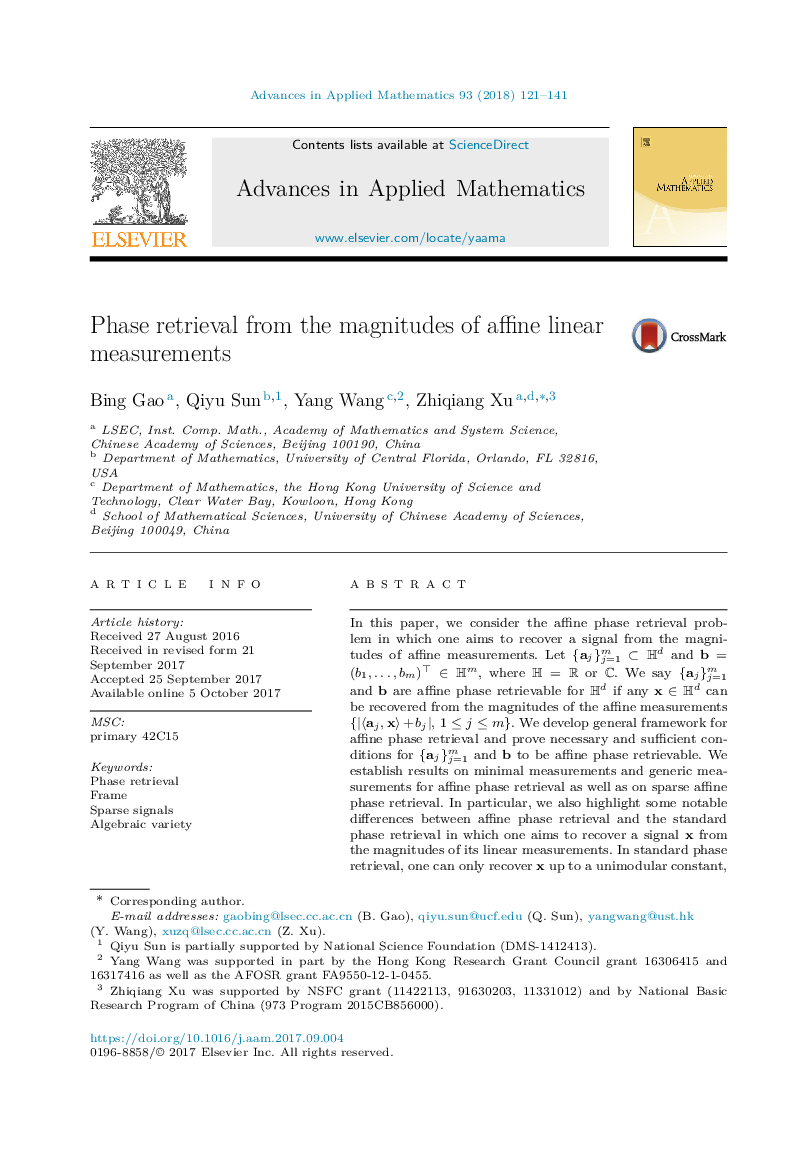| Article ID | Journal | Published Year | Pages | File Type |
|---|---|---|---|---|
| 5775354 | Advances in Applied Mathematics | 2018 | 21 Pages |
Abstract
In this paper, we consider the affine phase retrieval problem in which one aims to recover a signal from the magnitudes of affine measurements. Let {aj}j=1mâHd and b=(b1,â¦,bm)â¤âHm, where H=R or C. We say {aj}j=1m and b are affine phase retrievable for Hd if any xâHd can be recovered from the magnitudes of the affine measurements {|ãaj,xã+bj|,1â¤jâ¤m}. We develop general framework for affine phase retrieval and prove necessary and sufficient conditions for {aj}j=1m and b to be affine phase retrievable. We establish results on minimal measurements and generic measurements for affine phase retrieval as well as on sparse affine phase retrieval. In particular, we also highlight some notable differences between affine phase retrieval and the standard phase retrieval in which one aims to recover a signal x from the magnitudes of its linear measurements. In standard phase retrieval, one can only recover x up to a unimodular constant, while affine phase retrieval removes this ambiguity. We prove that unlike standard phase retrieval, the affine phase retrievable measurements {aj}j=1m and b do not form an open set in HmÃdÃHm. Also in the complex setting, the standard phase retrieval requires 4dâO(log2â¡d) measurements, while the affine phase retrieval only needs m=3d measurements.
Related Topics
Physical Sciences and Engineering
Mathematics
Applied Mathematics
Authors
Bing Gao, Qiyu Sun, Yang Wang, Zhiqiang Xu,
